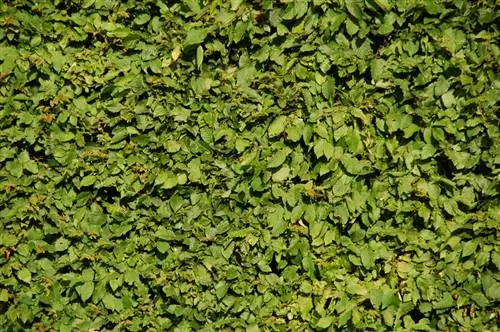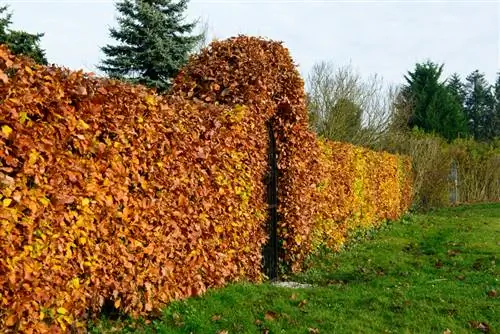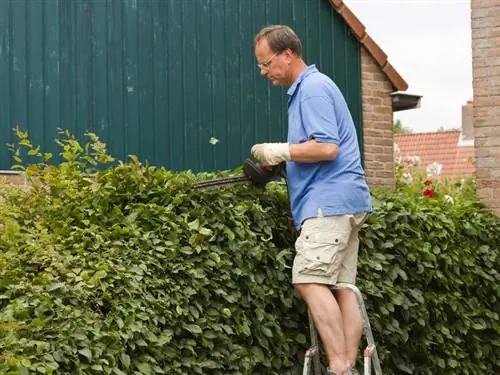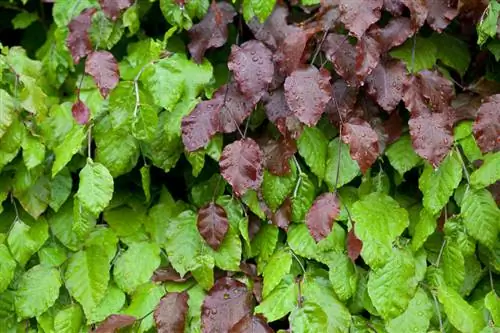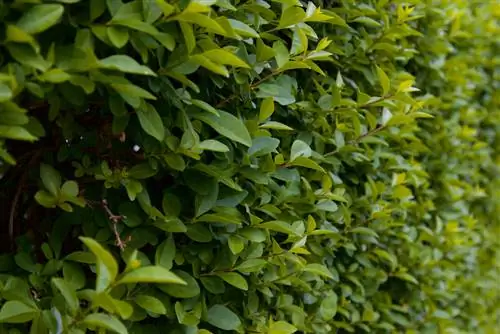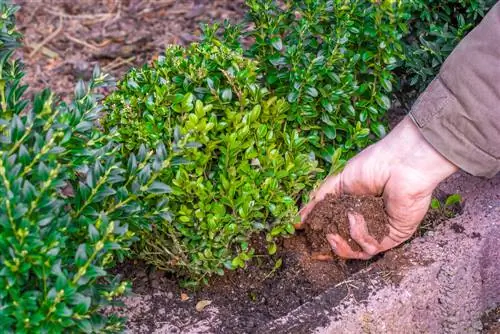- Author admin leonars@hobbygardeners.com.
- Public 2023-12-16 16:46.
- Last modified 2025-01-23 11:20.
A hornbeam hedge is very valued in garden design because it is easy to care for and undemanding. This also applies to fertilizing, which is only necessary regularly in the first few years. However, it is recommended to mulch the hedge.
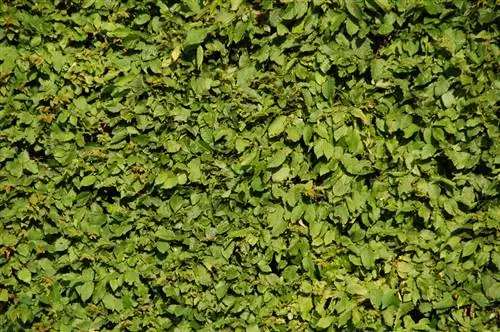
How should a hornbeam hedge be fertilized?
A hornbeam hedge should be provided with ripe compost and horn shavings when planting. In the first few years, fertilization in spring and July is recommended. Later the hornbeam can take care of itself. Mulching with bark mulch or leaves supports the supply of nutrients and maintains he althy soil.
When does a hornbeam hedge need to be fertilized?
When planting the hornbeam hedge, you should ensure there are enough nutrients in the soil. Add mature compost to the planting holes. Horn shavings are also suitable.
If the soil is well prepared, you will not need to fertilize in the first spring.
The hornbeam hedge is then supplied with fertilizer twice a year - preferably in spring and July. If the hornbeam hedge has grown in well, it supplies itself with nutrients via its deep roots and no longer needs to be fertilized.
The right fertilizer for hornbeam hedges
- Mature compost
- Horn shavings
- Bark mulch
- Leaves
- Liquid fertilizer for hedges
- Long-term fertilizer for hornbeam hedges
If you don't have your own compost in the garden, you can supply the hornbeam hedge with purchased fertilizer for hedge plants (€17.00 on Amazon) in the first few years.
When using long-term fertilizer, it is sufficient to fertilize the hornbeam hedge in spring.
Most of the hornbeam's foliage only falls off in spring when the plant sprouts again. Just leave the leaves there. They act like a natural mulch.
That's why mulching hornbeam hedges makes sense
With a hornbeam hedge, it is advisable to cover the ground with mulch. Mulch has various functions, all of which have a positive effect on the he alth of the hedge.
The material decomposes and releases nutrients that supply the hornbeam hedge. The mulch keeps the surface nice and loose so that the soil does not become compacted. Weeds can hardly emerge, which makes maintaining the hedge even easier.
Hornbeam hedges are absolutely hardy, but the dryness in winter causes problems for them. Applying a layer of mulch prevents the soil from drying out too much. You then don't have to water your hornbeam hedge in dry winters.
Tip
Experienced gardeners swear by larch bark mulch when fertilizing hornbeam hedges. The nutrients it contains are intended to strengthen the plants particularly well and keep the soil nice and loose.

